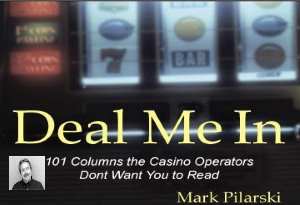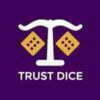Why is it that when a player jumps in while I’m playing blackjack, it seems to screw up the order of the cards in the shoe for the worse? Brian M.
Many players’ superstitions lead to strong, dubious, beliefs, such as: a new player enters the game in the middle of a shoe, changing the order of the cards and causing the innocent believer-in-magic to lose.
Yes, Brian, I will agree with you that the order of cards will alter when someone enters the game, but there is no way that you, the dealer, Nostradamus, or I can predict whether the new sequence of cards will help or hurt you. If you are playing smart, that being with perfect basic strategy, your expected return will remain the same regardless of minor turmoil due to Joe Blow’s arrival.
Appropriate etiquette when playing on a hand-held single or double deck game is to wait until the dealer shuffles before you join, especially if other players are winning, and they do not want you to change their luck. On the other hand, on a shoe or automatic shuffler, it is typical for a new player to enter the game immediately.
Nevertheless, it is always courteous to ask, “Do you mind if I join your game?” when stepping up to any table. Who needs the wrath of the players whose flow of cards suddenly changes because you jumped in? In their eyes, you intruded on a game in progress, and abruptly their “perceived” luck changed, which erroneously becomes your fault.
I always take even money on a blackjack because you get an even money payoff with no risk. I figure it’s the bird in the hand. Why shouldn’t I take the money and run? Jeff C.
You, Jeff, are typical of a player who is risk-averse, or as you proverbially put it, plus valet in manibus avis unica quam dupla silvis, which loosely translated from Latin means, “A bird in the hand is worth more than two in the woods.” You figure this maxim points out that by passing up even money for your blackjack, hoping for a more favorable return, you risk losing a sure thing.
What Jeff is pondering is that when you are a dealt a blackjack, and the dealer shows an ace up-card, he has the option of taking even money before the dealer checks the hole card. Jeff wants the bird in hand, but by taking even-money in blackjack, mathematically it will cost him 4% in profits over the long run.
Why? Simply because the dealer is more likely to NOT have a blackjack than to have one. Jeff will, over time, win marginally more than even money per hand if he were to pass on it. Therefore, Jeff, although you think it is better to be content with what one has rather than risk a certainty over a promising possibility, you will wind up with more greenbacks in your pocket over time if you decline the invitation of even money.
Gambling Wisdom of the Week: “The typical gambler might not really understand the probabilistic nuances of the wheel or the dice, but such things seem a bit more tractable than, say, trying to raise a child in this lunatic society of ours.” ~Arthur S. Reber, The New Gambler’s Bible




















